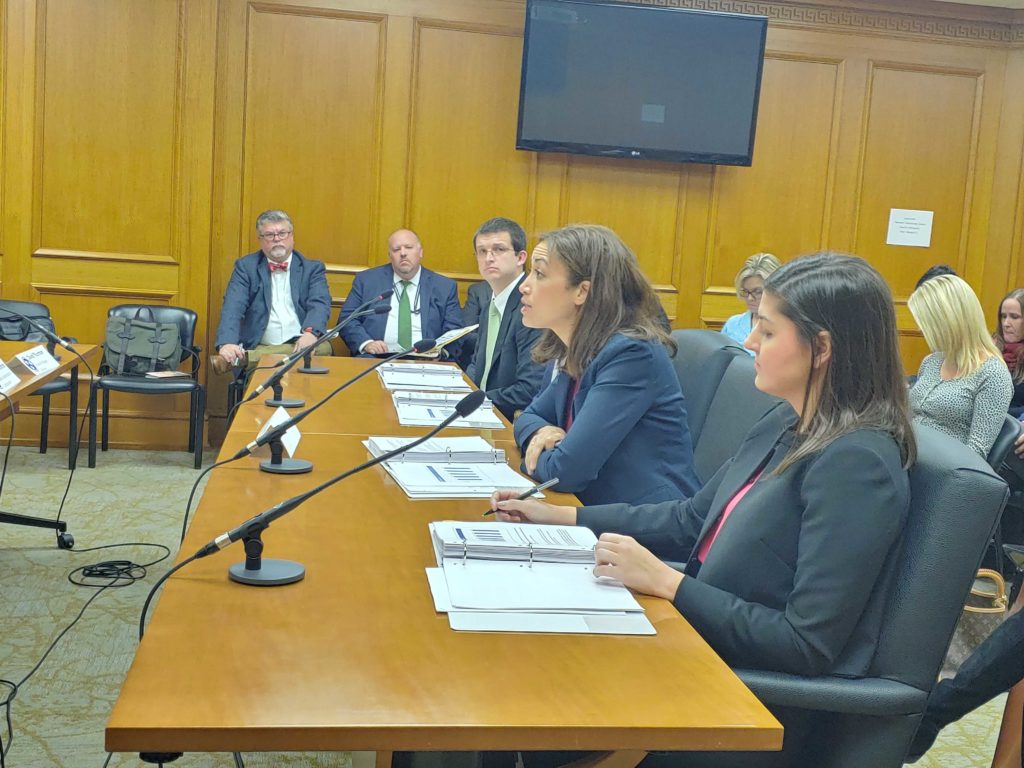
Is it income or is it not?
That’s the question many are asking about Tennessee’s new school voucher initiative after the state’s Education Commissioner Penny Schwinn provided conflicting statements last week.
Under current federal law, the answer is clear: at least some of the voucher would be taxable.
Gov. Bill Lee’s administration has said his Education Savings Account program won’t be counted as income because it will be structured as a scholarship. The $7,300 participants will get can be used to buy books or to offset tuition.
But here are also other items the money will cover, according to the state law that sets up the program. And Beverly Moran, a law professor and a federal tax expert at Vanderbilt University, said some of those will count as income.
“If you use the money for things like transportation expenses, that’s going to be subject to tax,” Moran said.
The Tennessee school voucher law also allows parents to use the money to buy school uniforms or to hire someone who can help manage the ESA funds. Moran said those are also subject to taxation.
But, the state’s Department of Education says its intent is for it to be tax-exempt.
“The intent of Gov. Lee’s education savings account initiative is that it would be considered a scholarship and therefore not subject to taxation,” the department said Tuesday in a statement when asked to clarify the program’s tax status.
However, Moran said that means the state agency will have to make some changes to satisfy the Internal Revenue Service, and it’s doubtful the department can’t handle it administratively.
“The statute says that you can spend money in these other ways,” Moran said. “So how will a state agency have the power to change the statute?”
She said that probably will require passing a new state law.
The state Department of Education has yet to explain how they intend to keep school vouchers tax-free.
Top Republican Says It’s Up To Feds
Some Republicans in the Tennessee House of Representatives have recognized there are certain uncertainties with the new law.
House Speaker Cameron Sexton, who voted against the legislation when it was before the General Assembly earlier this year, said it’s up to the federal government to decide on whether the program is tax-exempt.
“While the intent of the legislation was for the money to flow to the families to use for various educational needs and to be non-taxable,” Sexton told WPLN in a statement, “ultimately the taxable income question is a federal issue that the federal government will decide.”
Meanwhile, Adam Kleinheider, a spokesman for Senate Speaker Randy McNally, said his boss expects the money not to be counted as income tax.
“The clear legislative intent of the bill was for ESAs to be non-taxable,” Kleinheider said in an email. “The Department of Education is currently working to structure the program to make that intent a reality. Lt. Gov. McNally has every reason to believe that effort will be successful.”
Since Schwinn’s comments, multiple Democrats have come out expressing concerns over the new development.
State Sen. Raumesh Akbari, D-Memphis, called for a pause on the implementation of the program, which the Lee administration plans to start in fall of 2020.
“While the Democratic caucus did not support Gov. Lee’s private school voucher program, the language within the legislation is clear: The low-income families who enroll should not be punished with a new tax they cannot afford,” Akbari said. “This is a worst-case scenario for students, their families, the school districts and the state.”

